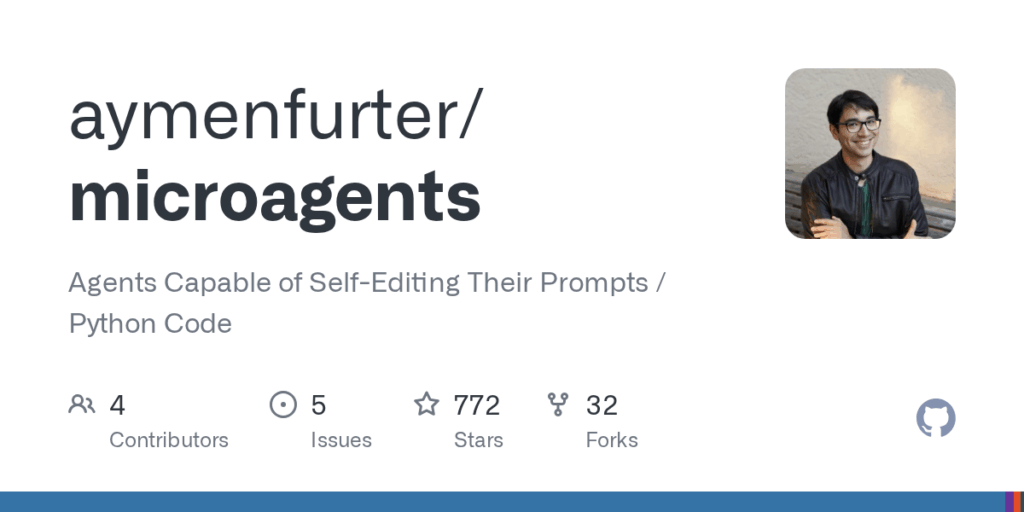microagents
Basic Information
Microagents is an experimental Python framework to dynamically generate small, microservice-sized agents in response to user tasks. Agents are created by an assistant, assessed for functionality, and upon successful validation stored for future reuse so the system can learn across chat sessions. The project is built with Python and integrates OpenAI models including gpt-4-turbo and text-embedding-ada-002, with optional Azure OpenAI and AAD support. It includes demos and synthesized agent prompts, a web interface based on Gradio, a command line interface, and example scripts such as main.py and app.py for local runs. Agents execute Python code directly and are persisted using SQLite. The README cautions that agents are not sandboxed and recommends running in isolated environments like Docker or GitHub Codespaces. The repo also provides pretrained agents and a judge-based validation phase.








